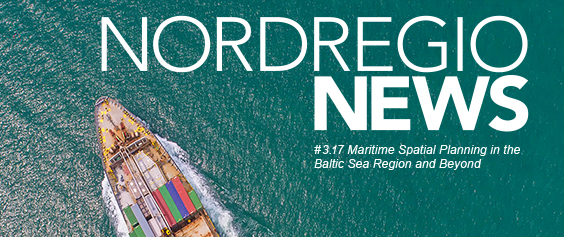Marine spatial planning (MSP) is an important tool in managing marine resources in a sustainable manner. However, the MSP process must become better at including young people.
The marine environment is facing many challenges, including climate change, unsustainable fishing, exploitation, insufficient management and pollution. It is clear that the actions being taken today are not sufficient to address these challenges. Although young people are aware of the importance of action to deal with future issues and environmental consequences, their means of influence is limited. All actors involved in MSP need to take more responsibility to include the perspectives of young people.
Today’s youth have grown up in a globalized world with transnational problems. Although sustainable management of the oceans has been discussed in international conferences for decades, active management measures have barely commenced. The MSP process concerns users across international borders, commercial sectors, social groups and ages, and therefore it is necessary to take a wider view in managing the ocean for future usage. In the context of the widespread perception of inaction on climate change and environmental issues, there is an opportunity for MSP to become an inspirational example to disheartened young people through the implementation of concrete international measures towards a sustainable future.
Inclusion is vital
The bridge between youth and the administrative institutions is not always obvious and we want to highlight the importance of inclusion, and a stronger use of dialogue with citizens in the MSP process. The implementation of strategies must occur locally, as members of society are ultimately responsible for making sustainability happen. Thus, to stimulate local engagement in MSP questions, it is important to foster dialogue between the younger generations and the actors involved in managing MSP in society.
It is vital that the MSP process is managed from a scientific basis, and that there is caution in relation to current knowledge gaps and potential future changes. Dialogue with different groups in society is required as it enables a mutual exchange of ideas and experiences. To target young people and inspire them to action in the MSP process is not only a great opportunity, but also a necessity to achieve sustainability goals. Many young people would welcome the opportunity to take action and contribute to common future goals. Avoiding the concerns that younger people have about the complexity of environmental issues could damage their trust in political institutions and ultimately harm the political system.
We are members of a marine network in the Swedish Society for Nature Conservation and, as volunteers working to raise public awareness in the marine sector, we are concerned with the management of the ocean and its shores. As active members of society, we are strongly aware of the lack of a dynamic and living relationship between political institutions and citizens. At the same time, we witness great efforts and commitment from members in our network to issues regarding the use of marine space and resources. The management of our oceans concerns everyone, which is why we want to be included in the MSP process.
Article continues below


